MUSUBI: Christmas Traditions in Japan
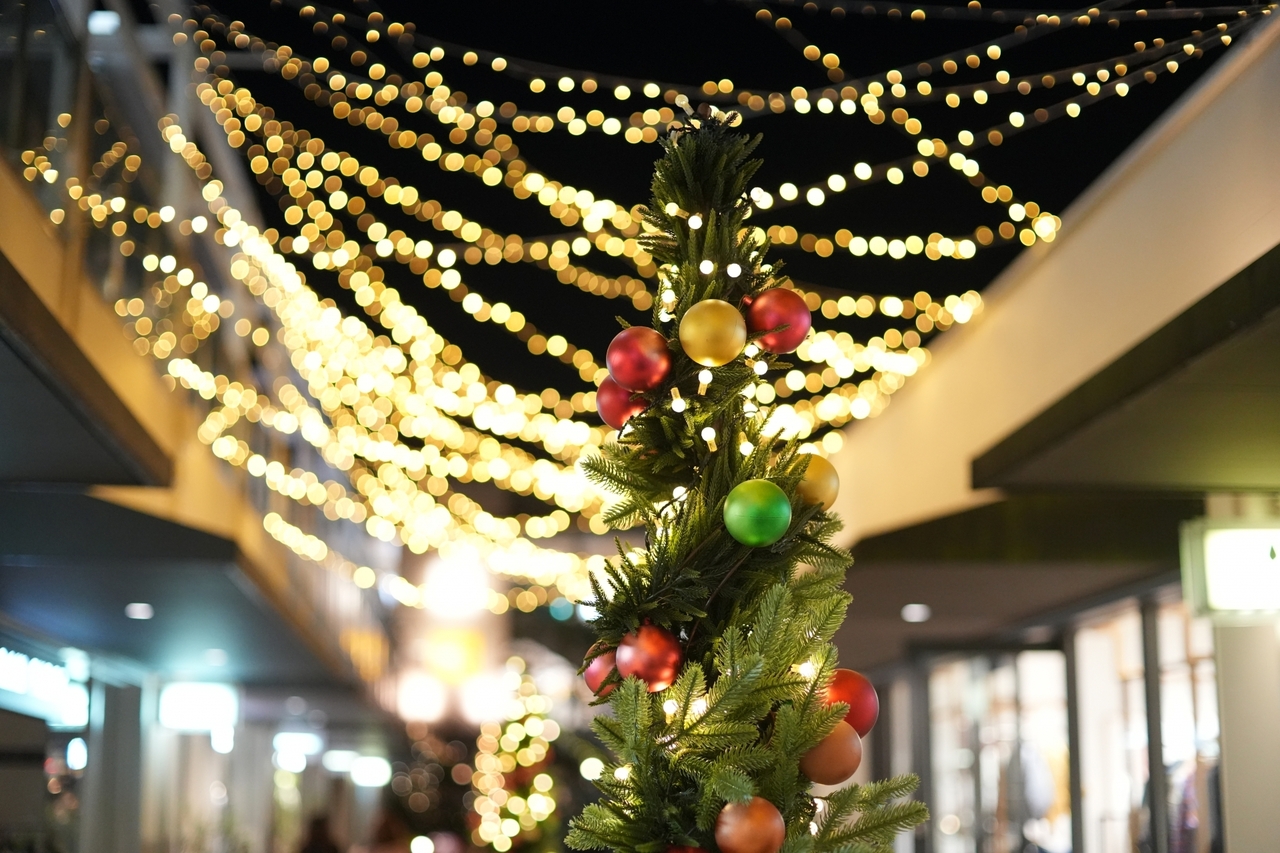
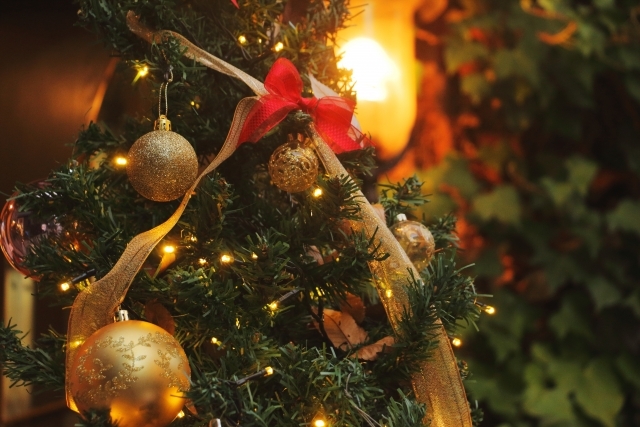
Every year, Christmas is celebrated the world over, but how about in Japan? It may come as a surprise to many, but it’s not considered a national holiday here. In some parts of the country, students will be going to school on December 25th for their final day before winter break starts. Businesses will be open as usual. Life goes on with Christmas in the background; it’s New Year’s Eve next week where Japan finally puts on and takes the day(s) off. But even if it isn’t a true holiday for most, Christmas is still something of a big deal here. Here are 3 holiday traditions of Christmas in Japan!
Christmas Cake
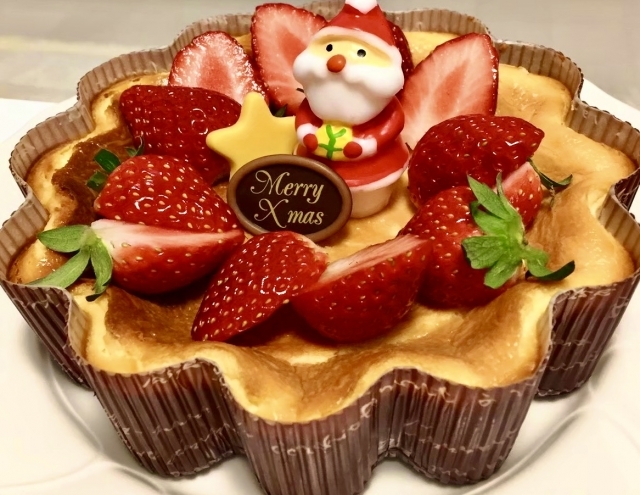
The traditional Japanese Christmas dessert isn’t cookies or gingerbread, but Christmas cake(クリスマスケーキ). However, it’s also not the kind of fruitcake that’s typically eaten in European and American countries during Christmastime either.
Japanese Christmas cake is typically a sponge cake-based strawberry shortcake, and much closer in size and texture to a traditional birthday cake. While white cream and strawberry Christmas cake is the most popular variety, you can find cakes of various types and flavors. Some variation sinclude chocolate, various fruits, hazelnut, and ice cream.
Japanese Christmas cakes are often decorated with fruits or chocolate, sugar Santas, and other Christmas-themed edible ornaments. The Christmas cake tradition in Japan dates back to 1922, but truly started catching on in the 1970’s, around the time our next tradition also began…
Japanese Christmas cake is typically a sponge cake-based strawberry shortcake, and much closer in size and texture to a traditional birthday cake. While white cream and strawberry Christmas cake is the most popular variety, you can find cakes of various types and flavors. Some variation sinclude chocolate, various fruits, hazelnut, and ice cream.
Japanese Christmas cakes are often decorated with fruits or chocolate, sugar Santas, and other Christmas-themed edible ornaments. The Christmas cake tradition in Japan dates back to 1922, but truly started catching on in the 1970’s, around the time our next tradition also began…
Fried Chicken
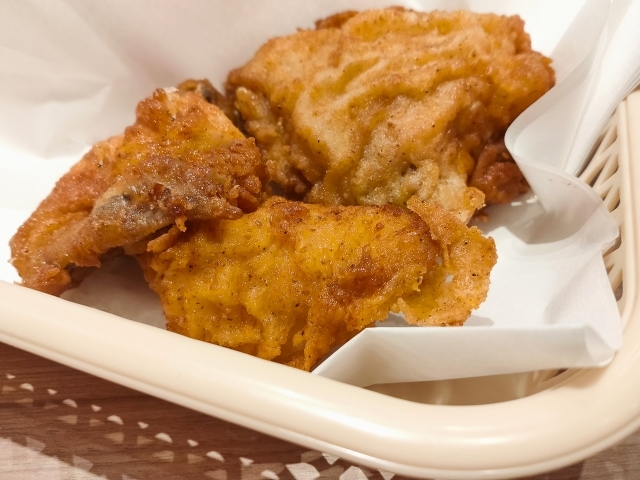
The traditional Christmas dinner in Japan is fried chicken. That’s just an accepted fact at this point, but why is that the case? There is actually a logical explanation for it, in a Dickensian fast food sort of way.
According to legend, Takeshi Okawara, the manager of Japan’s first KFC, woke up one night and wrote down an idea that came to him in a dream: sell a “party barrel” of chicken during Christmas time. Okawara was purportedly inspired after overhearing foreign patrons remark how they missed having turkey at Christmas, and around midnight that evening, suddenly decided a fried chicken dinner in a barrel might fill that gap.
Following a marketing push in 1974 knowns as “Kentucky for Christmas”, Okawara’s dream-inspired idea became an annual tradition for millions across the country. Nowadays, fried chicken is the most widely-eaten food on Christmas day, followed only by pizza.
Due to the high demand for chicken around this time of year, KFC (as well as other restaurants and convenience stores that jumped on the trend) have taken to requiring preorders, sometimes over a month in advance. If you’re looking to try the tradition yourself, it’s now quite easy to find friend chicken on Christmas eve or day due to the abundance of stores that sell it around this time. If you want the “authentic” KFC experience though, preordering before the end of November is recommended (and fortunately quite easy).
According to legend, Takeshi Okawara, the manager of Japan’s first KFC, woke up one night and wrote down an idea that came to him in a dream: sell a “party barrel” of chicken during Christmas time. Okawara was purportedly inspired after overhearing foreign patrons remark how they missed having turkey at Christmas, and around midnight that evening, suddenly decided a fried chicken dinner in a barrel might fill that gap.
Following a marketing push in 1974 knowns as “Kentucky for Christmas”, Okawara’s dream-inspired idea became an annual tradition for millions across the country. Nowadays, fried chicken is the most widely-eaten food on Christmas day, followed only by pizza.
Due to the high demand for chicken around this time of year, KFC (as well as other restaurants and convenience stores that jumped on the trend) have taken to requiring preorders, sometimes over a month in advance. If you’re looking to try the tradition yourself, it’s now quite easy to find friend chicken on Christmas eve or day due to the abundance of stores that sell it around this time. If you want the “authentic” KFC experience though, preordering before the end of November is recommended (and fortunately quite easy).
Illumination Displays
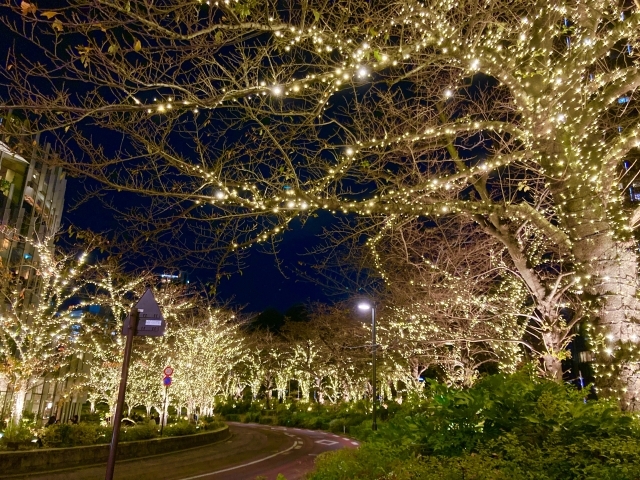
While the tradition of winter illuminations in Japan developed separately from Christmas, the two are undeniably linked. Every winter, cities in Japan are full of twinkling lights. More and more, many of those illuminations will incorporate Christmas-themed imagery in them, making them inseparable from the holiday mood.
While lit-up Christmas trees at home are still a relatively novel concept, for businesses and shopping centers, displaying decorated trees with lights is almost a must-have these days.
By far the most famous and important illumination display is Kobe Luminarie, a light festival held in Kobe every year since 1995. It was first started to commemorate the Great Hanshin earthquake of that year. The event actually helped to bring tourism back to Kobe after the disaster. It annually attracts around 4 million people every year, and raises around 135 million yen in donations.
Photo Credits:
Main image: はぴぞう
Additional photos by ayapipi , 胡麻油 and さあめ4号
All other content (text) created by the original author and ©2023, 2024 MUSUBI by Borderlink
While lit-up Christmas trees at home are still a relatively novel concept, for businesses and shopping centers, displaying decorated trees with lights is almost a must-have these days.
By far the most famous and important illumination display is Kobe Luminarie, a light festival held in Kobe every year since 1995. It was first started to commemorate the Great Hanshin earthquake of that year. The event actually helped to bring tourism back to Kobe after the disaster. It annually attracts around 4 million people every year, and raises around 135 million yen in donations.
Photo Credits:
Main image: はぴぞう
Additional photos by ayapipi , 胡麻油 and さあめ4号
All other content (text) created by the original author and ©2023, 2024 MUSUBI by Borderlink
WRITER

Lupa Van Luis
From the USA
A connoisseur of Japanese cuisine that has traveled the country for many years!
RECOMMENDED
-
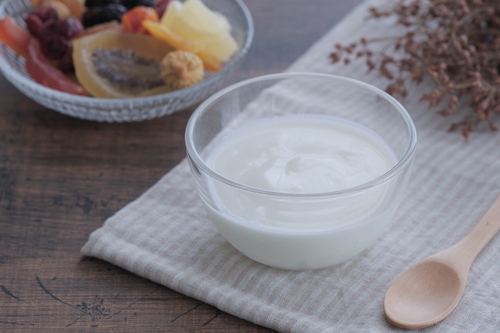
Gut-Checking in Japan
Bacteria have a bad reputation and for good reason. The thought of eating a few billion a day in the interest of y... -
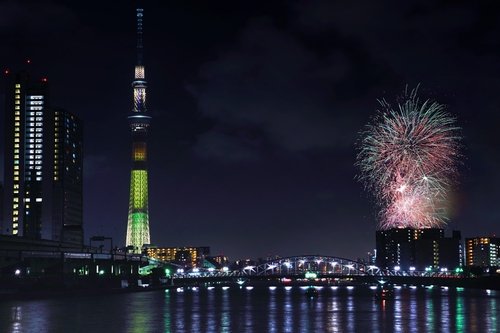
My Incredible Journey in Japan
Japan, a country renowned for its captivating mixture of ancient traditions and pioneeringmodernity, has l... -
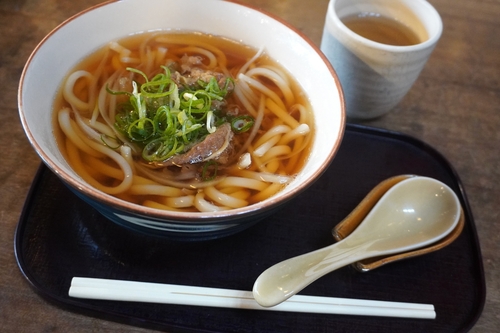
A Guide to Japanese Udon Noodles
Japan is one of the countries that is popular for their noodles as a staple Japanese cuisine. Udon (うどん), as one ...



